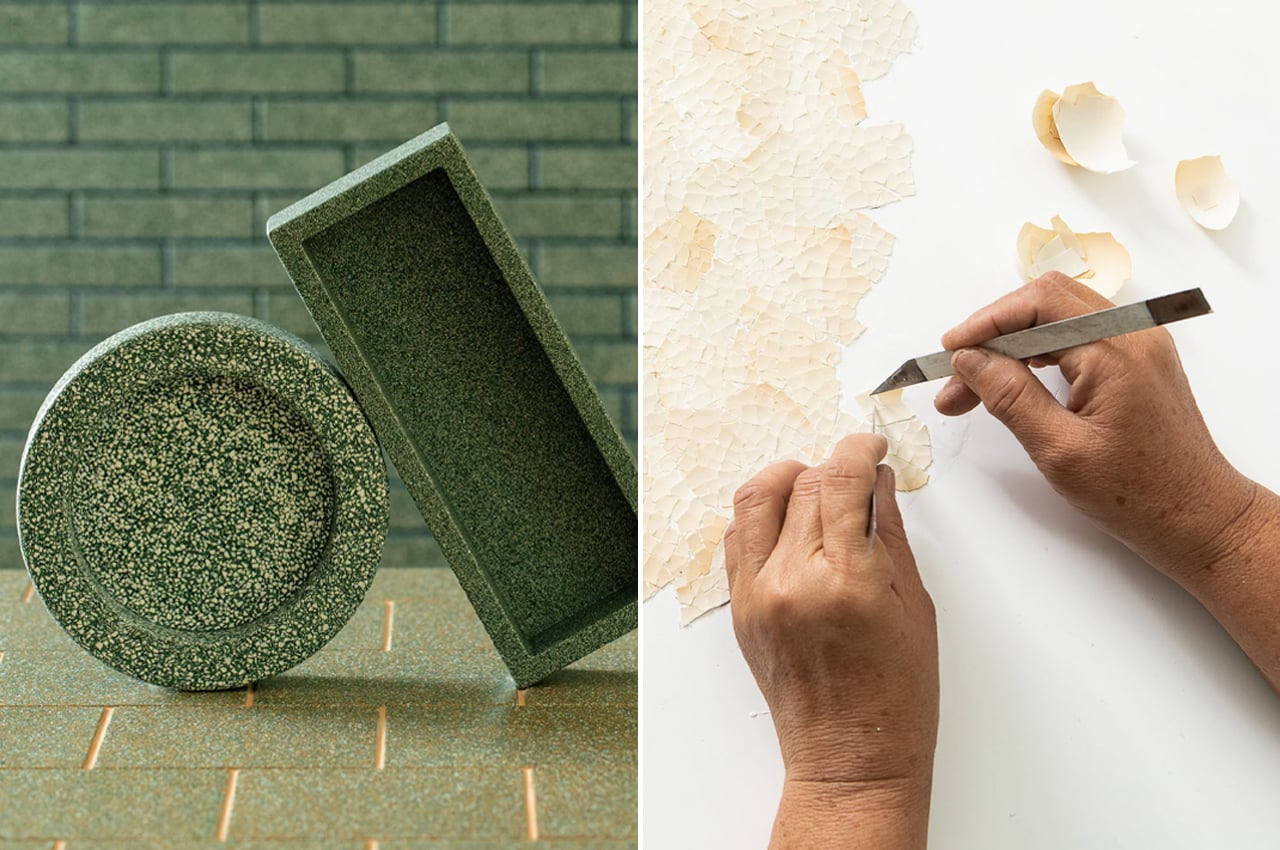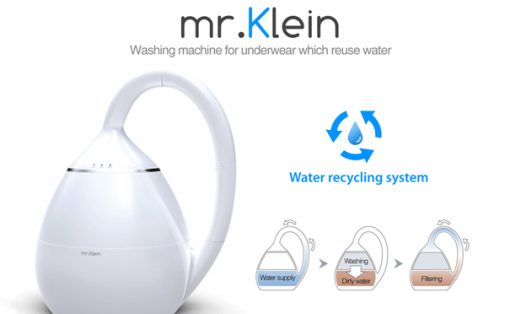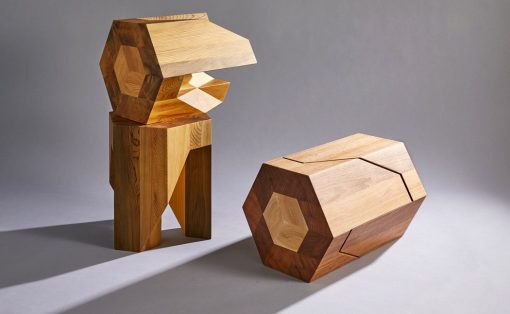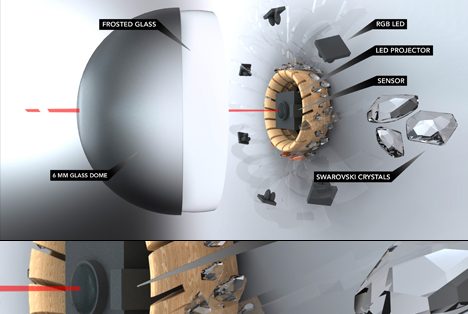
CArrelé is a collection of high-performance bioceramic tiles made from a mixture of eggshell fragments and binding agents.
When considering waste, eggshell usually isn’t the first thing to come to mind. On a yearly basis, 250,000 tons of eggshell biowaste are produced worldwide. However, the eggshell’s renewable and bioceramic properties are what set it apart from other ceramic materials for Elaine Yan Ling Ng, who took eggshell scraps and transformed them into bioceramic tiles.
Designer: Elaine Yan Ling Ng x Nature Squared


In contrast to traditional ceramic and porcelain tiles, eggshell naturally absorbs carbon dioxide and works as an organic, absorbent decarbonating filter that separates carbon dioxide from industrial gases. Elaine Yan Ling Ng, Chief Innovator of Nature Squared, introduced CArrelé, a collection of high-performance, eggshell-based tiles that take on different hues and gradients depending on the additives used.


Collected from local bakeries and kitchens in the Philippines, Nature Squared then crushes the eggshells into tiny fragments and forms them into cured tiles reminscienct of terrazzo. The fragments range in size, measuring anywhere between a grain of sand to three millimeters, creating an irregular, asymmetrical speckled look.


To make the finished tiles, the fragments are combined with a binding agent and shaped into tiles that take on a variety of different shapes. From there, the tiles are left to cure at room temperature.


Taking Easter egg dyeing to the next level, Nature Squared relies on an array of different dye methods. To achieve an earthy, rustic look, the eggshell fragments are “toasted,” to run the gradient of the color brown, moving from a rich cream to a dark burnt look. The eggshells also absorb natural dyes well, including indigo, chlorophyllin, and madder.


CArrelé was initially inspired by the use of eggshells in the medical industry, as Ng recognized their calcium-rich makeup that lends to their natural durability. While Ng’s eggshell-based tiles are ideal for kitchen backsplashes and bathroom walls for their cleanability and waterproof properties, the collection of bioceramics ultimately prevents biowaste from ending up in landfills.



Once the eggshell fragments are combined with a binding agent, they are shaped into tiles.

Eggshells have a calcium-rich material that makes them a durable choice for building material.


Their waterproof and easy-to-clean properties make eggshell-based tiles an ideal choice for bathroom walls and kitchen backsplashes.







